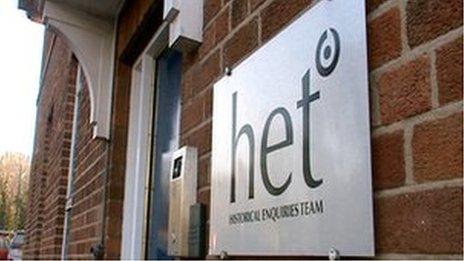Peter Hain calls for end to prosecutions over NI Troubles
- Published
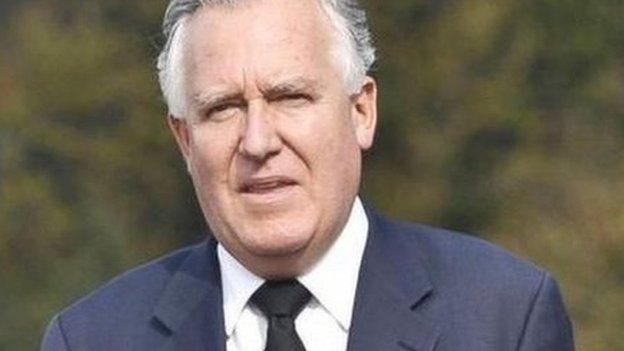
Peter Hain said he realised his suggestion would make victims and survivors "desperately angry", but argued it was necessary for Northern Ireland to stop being "stalked" by its past
Former NI Secretary Peter Hain has said there should be an end to prosecutions over Northern Ireland's Troubles.
It would mean no-one would be prosecuted for the 3,000 unsolved murders during 30 years of violence.
Mr Hain made his comments ahead of the start of a trip to London by President Michael D Higgins, the first UK state visit by an Irish head of state.
A spokesperson for David Cameron said: "The prime minister does not support the idea of amnesties."
Mr Hain was secretary of state for Northern Ireland from 2005 to 2007.
In an interview in The Times, external, he said he realised that his idea would make victims and survivors "desperately angry", but argued it was necessary for Northern Ireland to stop being "stalked" by its past.
"I think there should be an end to all conflict-related prosecutions," he told the paper.
'Issues of the future'
"That should apply to cases pre-dating the Good Friday Agreement in 1998. This is not desirable in a normal situation. You would never dream of doing this in England, Scotland and Wales, but the Troubles were never normal.
"You can keep going back all the time and you can keep looking over your shoulder or turning around all the time, but what that does is take you away from addressing the issues of now and the issues of the future."
Mr Hain said Northern Ireland's political leaders urgently needed to face the legacy of the conflict because the issue was not "going to go away".
"It's going to continue stalking the first minister, the deputy first minister and the entire body politic there. The past just stalks them and they're either going to confront it and deal with it together or they're going to continue to be stalked by it," he said.
The Northern Ireland Good Friday Agreement of 1998 meant anyone convicted of paramilitary crimes was eligible for early release.
However, this did not cover those suspected of such crimes, nor did it cover people who had been charged or convicted but who had escaped from prison.
In February, it emerged during the trial of John Downey, who was accused of murdering four soldiers in the Hyde Park bombing in 1982, that Irish republicans who were On the Run (OTR) had received letters stating that they were not wanted by police for paramilitary crimes committed before the 1998 Good Friday peace agreement.
Anger
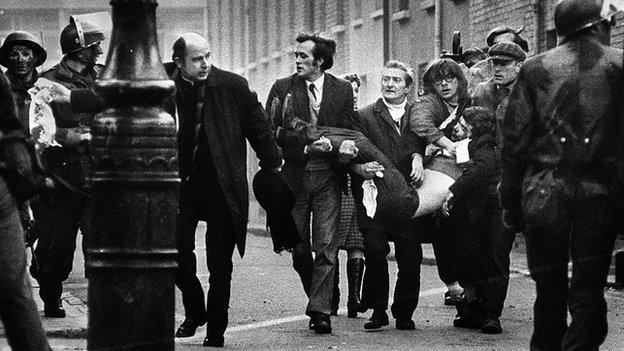
One of the victims of the 1972 Bloody Sunday shootings in Londonderry is carried away. Thirteen people were shot dead by British soldiers, while a 14th died months later
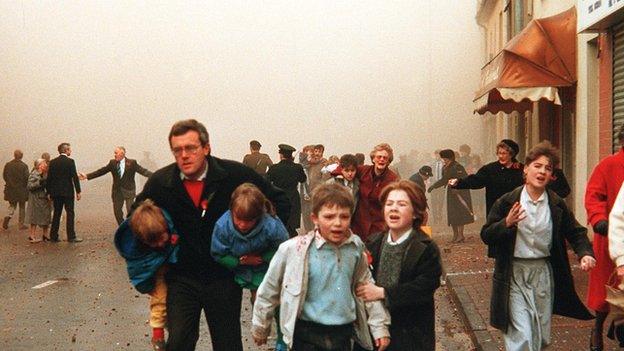
Eleven people were killed and 63 injured when an IRA bomb exploded at the cenotaph in Enniskillen on Remembrance Day in 1987

The remains of McGurk's bar in north Belfast. Fifteen people were killed in the loyalist bomb attack in 1971
The revelation caused anger among unionist politicians who denied any knowledge of the scheme.
The controversy is being examined in two separate inquiries.
The British government has appointed Lady Justice Hallett to conduct an independent review of the administrative scheme for dealing with OTRs.
The Northern Ireland Affairs Committee is also holding its own inquiry into the scheme.
Following the OTRs revelations, Mr Hain said last month that British soldiers involved in the Bloody Sunday killings should not be prosecuted.
Fourteen civilians died after soldiers opened fire at a civil rights march in Londonderry in 1972.
Last year, Northern Ireland's attorney general said there should be an end to prosecutions for Troubles-related killings.
John Larkin said there should be no further police investigations, inquests or inquiries into any relevant killings that took place before the signing of the Good Friday Agreement in 1998.
That meant all deaths caused by paramilitaries, police or the Army.
Mr Larkin said his proposal was not a formal amnesty, but was a logical consequence of the agreement.
- Published20 November 2013

- Published20 November 2013
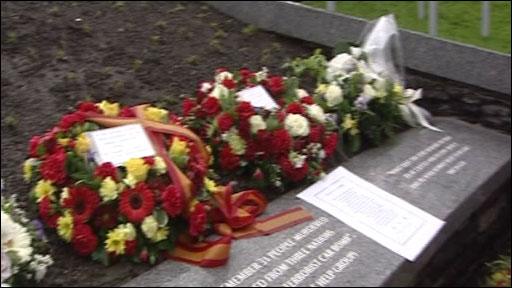
- Published20 November 2013
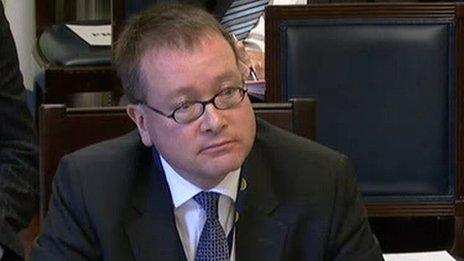
- Published20 November 2013
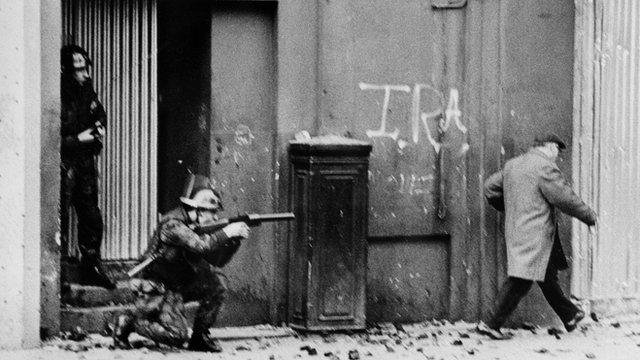
- Published18 November 2013

- Published4 November 2013
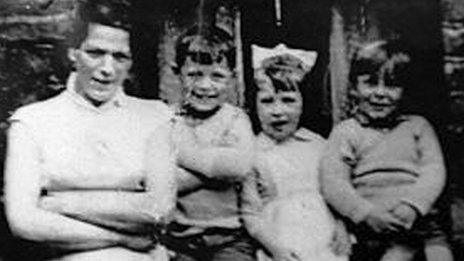
- Published11 November 2013
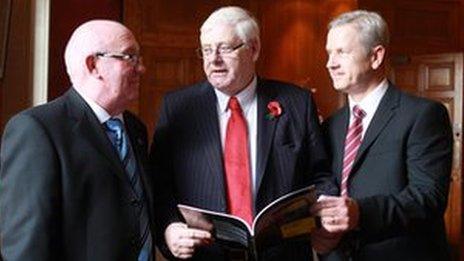
- Published12 September 2013
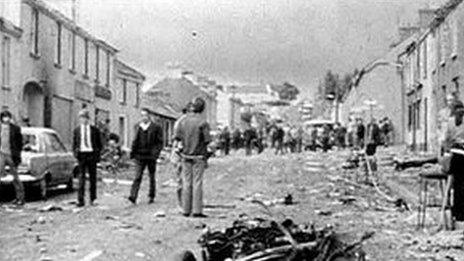
- Published12 September 2013
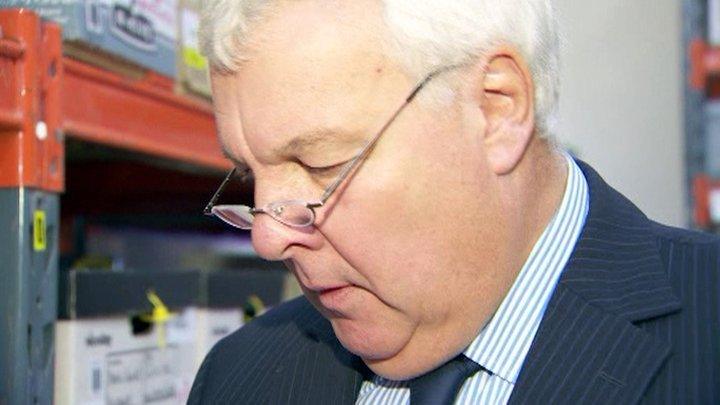
- Published5 September 2013
